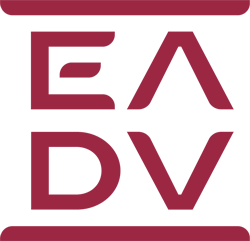Get Ready for the EADV Games 2025
Team up. Test your knowledge. Take the title!
Held during the EADV Congress, the Games bring together dermatology residents from across Europe for a thrilling, fast-paced quiz competition covering all areas of dermatology and venereology.
Whether you’re looking to showcase your clinical expertise, connect with peers, or simply enjoy some friendly competition, the EADV Games 2025 are your chance to shine. Form your team, represent your country, and be part of one of the Congress’s most exciting and dynamic events.
Are you ready to take on the challenge?
EADV Games
Room: E01 E02 E03
Date: Friday 19 September, 16.00 CEST
Participating countries in 2025
Finland
France
Germany
Greece
Hungary
Ireland
Italy
Latvia
Poland
Portugal
Romania
Serbia
Slovakia
Spain
Switzerland
The Netherlands
Türkiye
United Kingdom
Structure of the EADV Games
- Round 1 In the first round there will be 3 groups of 6 teams each. In each group the 6 teams will compete against each other and the first 3 teams to get 3 points will advance to the next stage.
- Round 2 The remaining 9 teams will be divided into a group of 4 and a group of 5. In each group, the first 2 teams to get to 5 points will advance to the semifinal.
- Semifinal The 2 teams to get to 3 points will advance to the final.
- Final The first team to get to 10 points will be the winner of the EADV Games.
The participants of the winning team gets free registration to the next EADV Congress!
